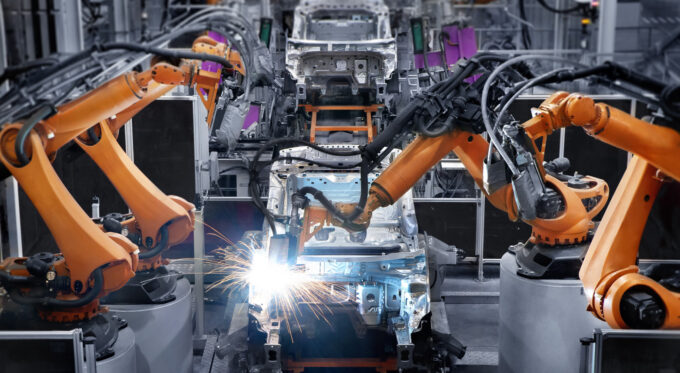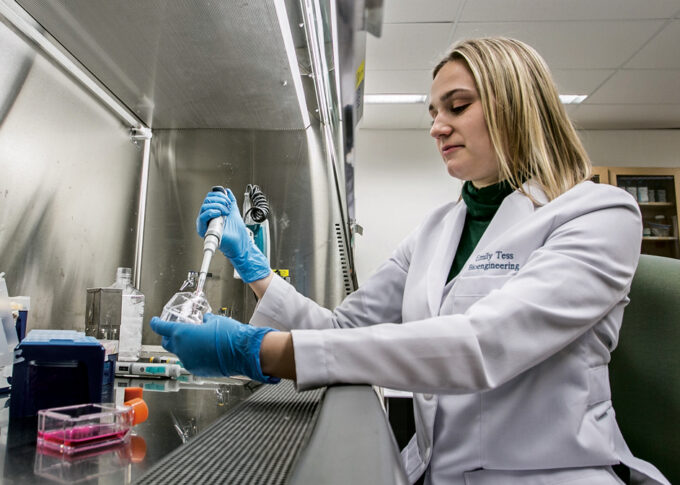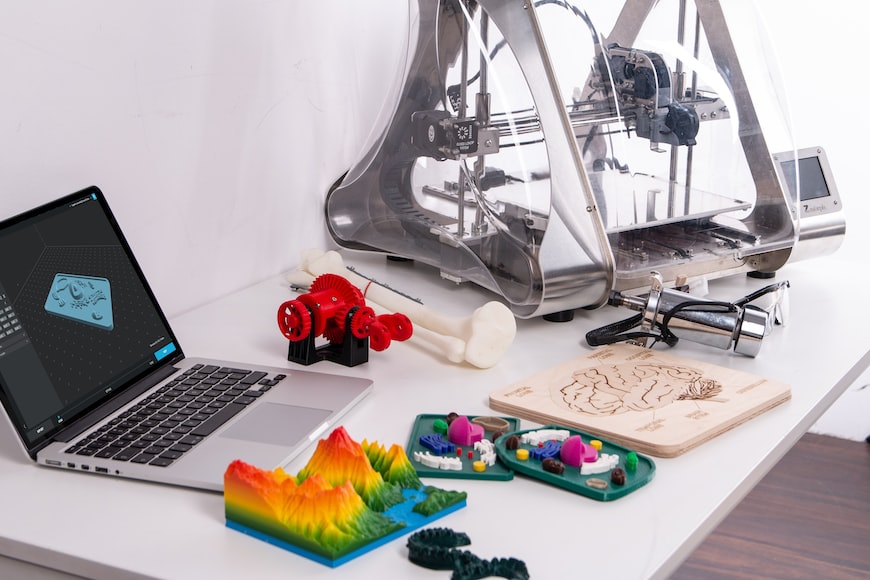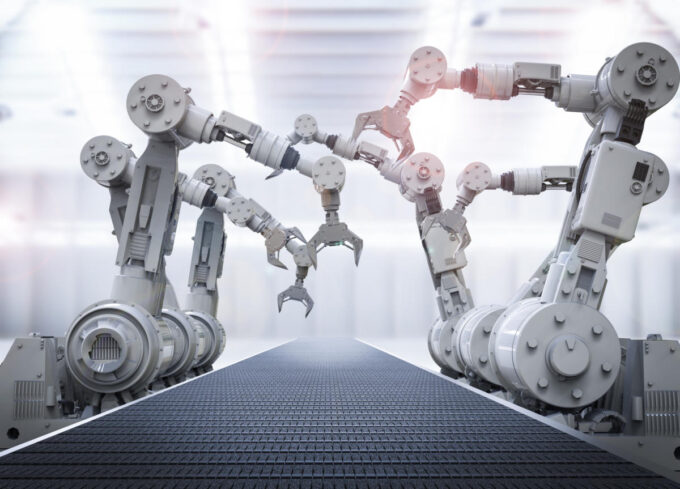In today’s dynamic and evolving world, STEM (Science, Technology, Engineering, and Mathematics) fields have become the driving force behind innovation, shaping industries and revolutionizing the way we live, work, and interact.
STEM education can offer an interactive and immersive learning experience, which can have a remarkable impact on a student’s capacity for knowledge.
As we look ahead to the future, it is essential to explore the emerging fields within STEM, as they hold the key to exciting career prospects and advancements. These emerging fields are characterized by cutting-edge technologies, groundbreaking research, and the need for skilled professionals who can navigate the complex challenges of tomorrow.
In this blog post, we will shed light on 4 such career prospects for you to make a mark in.
Artificial Intelligence and Machine Learning

Artificial Intelligence (AI) and Machine Learning (ML) are domains that are revolutionizing industries. AI involves simulating human intelligence in machines, while ML focuses on algorithms that allow machines to learn from data.
In AI, Natural Language Processing (NLP) empowers machines to comprehend and interact with human language. Professionals in the field of NLP are dedicated to the creation of algorithms and systems that possess the ability to analyze and generate human language, thereby enabling the development of virtual assistants, chatbots, and language translation applications.
Computer Vision is another prominent area within AI, where professionals develop algorithms and systems that enable machines to perceive and interpret visual information from images and videos. This technology finds applications in fields such as self-driving cars and object detection.
Machine Learning, a subset of Artificial Intelligence, concentrates on creating algorithms and systems that can learn and progress from data without requiring explicit programming.
This field has numerous applications, such as predictive analytics, fraud detection, recommendation systems, and personalized medicine. If you want to dive deep into the paradigm of Machine Learning, then your work ecosystem would entail tasks such as data preprocessing, feature engineering, model selection, and performance evaluation.
Robotics and Automation

STEM education manifests a holistic interplay of science and technology, where the emphasis is not only on theoretical principles but on actual implementations.
Many courses do shed light on certain domains of robotics and automation, empowering young minds like you to stay abreast with the changing technologies.
Robotics and Automation have emerged as transformative fields, revolutionizing industries and reshaping the way tasks get accomplished. Professionals in this field design and develop robotic systems, program intelligent algorithms, and create innovative solutions that enhance efficiency and productivity.
Industrial manufacturing processes have transformed after the introduction of robots. Employing robots has resulted in heightened levels of accuracy, swiftness, and effectiveness. Industrial robots exhibit exceptional precision when executing repetitive tasks, consequently yielding enhanced product quality and diminished expenses.
These proficiently trained robots adeptly undertake a wide array of responsibilities, including assembly, welding, material handling, and even intricate duties like painting and inspection.
Automation in manufacturing has enabled companies to streamline production processes, increase output, and reduce human errors.
They are also making a mark in the healthcare industry. For instance, surgical robots provide invaluable assistance to surgeons during intricate procedures, granting them heightened precision and control.
These robots can perform minimally invasive surgeries, resulting in smaller incisions, faster recovery times, and reduced complications for patients.
Yet another burgeoning domain is the realm of autonomous vehicles, encompassing self-driving cars, trucks, and drones, which are currently undergoing development and testing to revolutionize transportation and surveillance practices.
These vehicles leverage cutting-edge sensors, machine learning algorithms, and artificial intelligence to navigate roadways and make informed decisions.
The potential benefits of autonomous vehicles include improved road safety, reduced traffic congestion, and increased transportation efficiency.
The field of Robotics and Automation offers exciting career opportunities for those who are passionate about innovation and problem-solving. As a professional in this field, you will be working on developing advanced control algorithms, sensor systems, and perception algorithms that enable robots to navigate and interact with their surroundings.
You will also be collaborating with experts in fields such as AI and ML to enhance the intelligence and autonomy of machines. By pursuing a career in Robotics and Automation, you can contribute to technological advancements that have the potential to improve lives, enhance efficiency, and revolutionize industries.
Cybersecurity and Ethical Hacking

In recent years, the relevance of coding as a part of the curriculum has risen in an exponential manner. If you aspire to become a cybersecurity expert and are looking to enhance your understanding of STEM principles, it is crucial to select the right online learning provider.
This is especially important given the proliferation of fraudulent courses in the digital landscape. It is essential to find a platform that not only offers authentic content but also focuses on building strong foundational knowledge from the ground up.
Moreover, in accordance with a study mentioned on the website proprep.com, student performances improve manifold only when STEM teaching modules adapt to active learning and keep the students as the focal point of training.
In our progressively interconnected world, the field of cybersecurity has attained the utmost significance in safeguarding digital systems and safeguarding sensitive information against the perils of cyber threats.
Cybersecurity experts are essential for locating weaknesses, introducing preventive measures, and responding to security issues. They strive hard to keep networks, databases, and digital properties safe from illegal access, data breaches, and cyber-attacks.

Ethical hacking, also called white-hat hacking, is an important part of cybersecurity. Ethical hackers use their skills and understanding to find vulnerable spots in computer systems, networks, and applications, allowing organizations to proactively tackle possible vulnerabilities.
By carrying out penetration testing and vulnerability assessments in a controlled environment, ethical hackers help to heighten security and remain one step ahead of cybercriminals. Their work is essential in keeping systems secure and creating bulletproof defense strategies.
The field of cybersecurity offers diverse career paths, including roles such as cybersecurity analyst, penetration tester, security architect, incident responder, and security consultant.
With the increasing adoption of cloud computing, Internet of Things (IoT) devices, and digital transformation across industries, the demand for skilled cybersecurity professionals is on the rise. Pursuing a career in cybersecurity can provide you with the opportunity to protect valuable data, mitigate risks, and contribute to a safer digital landscape.
Biotechnology and Bioengineering

Biotechnology and Bioengineering have revolutionized the fields of healthcare, agriculture, and environmental sustainability. These disciplines involve the application of biological knowledge and techniques to develop innovative solutions to complex challenges.
Biotechnology has a major impact on the healthcare industry, promoting the development of new medications, treatments, and diagnosis techniques.
Biotechnologists work on identifying and understanding disease mechanisms, conducting genetic research, and designing targeted treatments.
Bioengineering applies engineering practices to medical contexts to develop devices, prosthetics, and tissue engineering solutions with the aim of improving patient outcomes, and quality of life, and addressing health problems.

Additionally, in agriculture, biotechnology and bioengineering have revolutionized crop production and strengthened food security. Genetic engineering has been utilized to create crops with increased resistance to pests and diseases as well as improved yield.
Biotechnologists also work on developing sustainable agriculture practices, such as bioremediation and biofuel production, to address environmental challenges and reduce reliance on fossil fuels.
Moreover, researchers in this field develop innovative solutions to address pollution, waste management, and renewable energy production. For example, bioengineers work on developing microbial fuel cells that use bacteria to generate electricity from organic waste, paving the way for cleaner energy sources.
Pursuing a career in biotechnology and bioengineering offers you the opportunity to contribute to groundbreaking research, develop life-saving treatments, and tackle global challenges. From gene editing and regenerative medicine to sustainable agriculture and environmental conservation, these fields hold immense potential for innovation and positive impact.
Conclusion
In conclusion, exploring the emerging fields within STEM is crucial if you are seeking rewarding and impactful careers. By acquiring the necessary skills, staying informed about technological advancements, and embracing a lifelong learning mindset, you can position yourself at the forefront of these emerging fields and contribute to shaping the future of technology and society.










